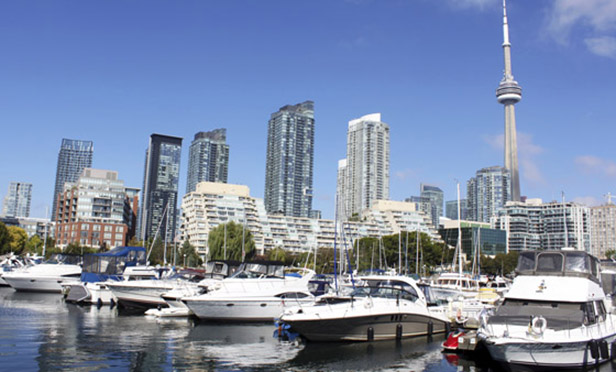
 Could Toronto be the home of the next Silicon Valley?
Could Toronto be the home of the next Silicon Valley?
Taxes on rich Americans are probably going up if Democrats win both the presidency and Congress anytime soon. Whether it's to provide revenue for more government spending on health care or the environment, or simply to reduce inequality, it seems likely that the well-off will pay more. The idea receives wide support.
Exactly which type of taxes would go up, and on which group of rich people, and by how much, remains to be seen. Prominent proposals include Democratic Senator Elizabeth Warren's plan for a 2 percent tax on wealth of more than $50 million and Representative Alexandria Ocasio-Cortez's idea for a 70 percent tax rate on income of more than $10 million a year.
If and when taxes are raised, an interesting question is how those affected will respond. They can probably be expected to spend more on political campaigns to limit taxes. They will almost certainly engage in more intensive avoidance efforts.
But if that doesn't work, the affluent could resort to the ultimate dodge — they could leave the country. This is one of the things that forced France to drop its "supertax" of 75 percent on incomes of more than 1 million euros ($1.13 million). That tax, which lasted from 2012 through 2014, caused rich people such as executive Bernard Arnault and actor Gerard Depardieu to move to neighboring Belgium, and made it hard for France to attract senior managers.
The U.S. is hardly France. Other than a few eccentric personalities such as Facebook Inc. co-founder Eduardo Saverin, who renounced his American citizenship in 2015 and moved to Singapore to escape taxes, very few millionaires tend to abandon the richest, most powerful country in the world. The U.S. is home to some of the most important centers of the technology industry, the finance industry and others. And unlike in Europe, there isn't an abundance of alternative nearby countries to move to, meaning that wealthy American expatriates might have to move far from family and friends.
But if the U.S. raised top tax rates a lot, the situation might change. And there is one other appealing country nearby, which (mostly) speaks the same language as the U.S. Although some Americans think of Canada as a quasi-socialist economy thanks to its single-payer health-care system, it's not actually a high-tax country. The top federal income tax rate in Canada is 33 percent — lower than the equivalent rate in the U.S. The provincial tax rate in Ontario, home to the business hub of Toronto, is 13.16 percent, similar to the 13.3 percent paid by Californians.
If the U.S. raised taxes a lot on the rich, would Canada follow suit? It's true that during the past century or so, the top tax rates charged by major developed economies have tended to move roughly in concert.



